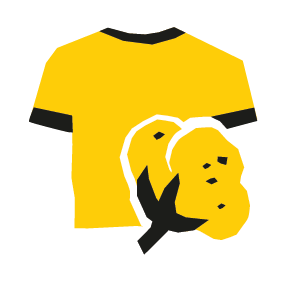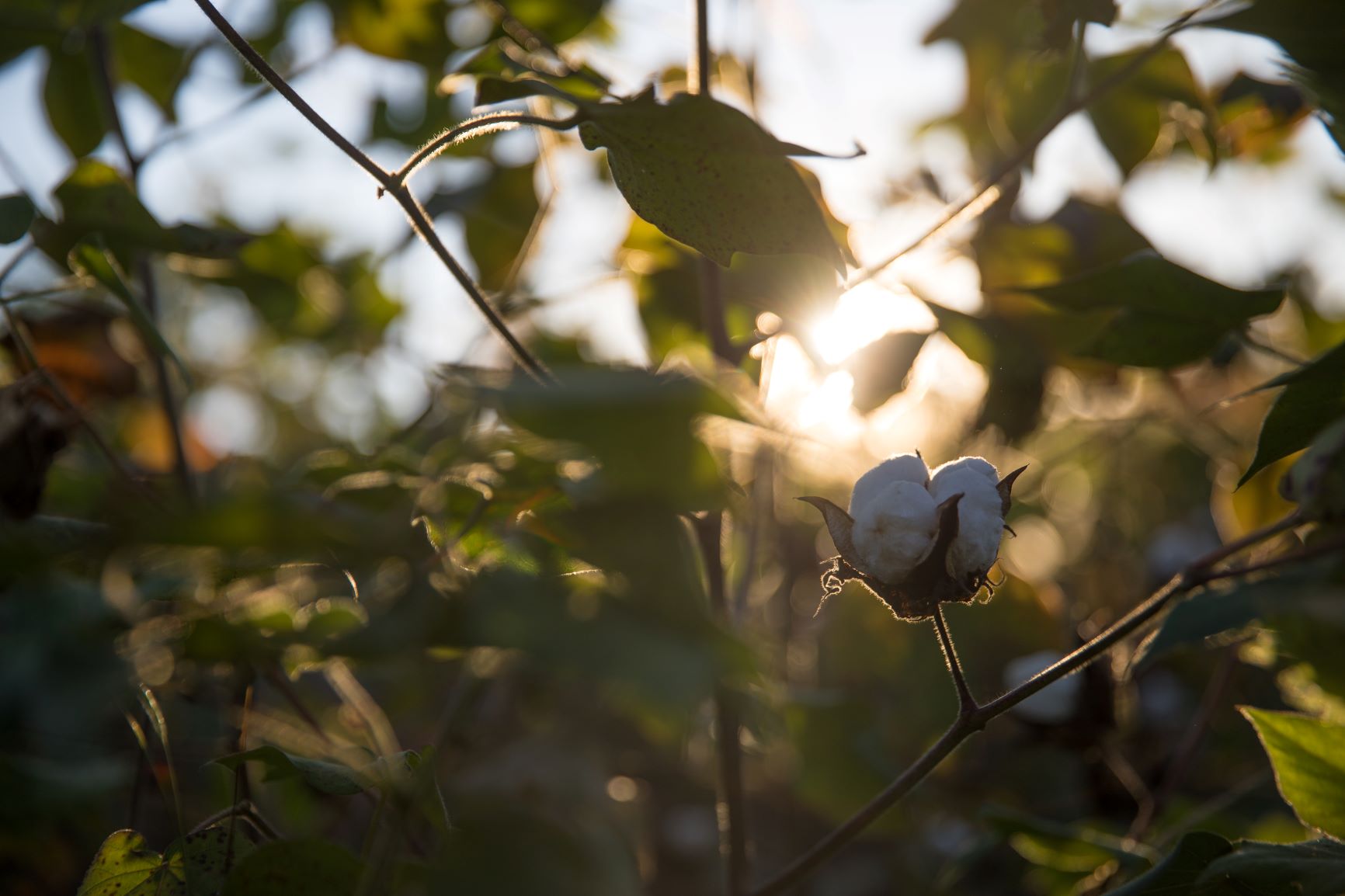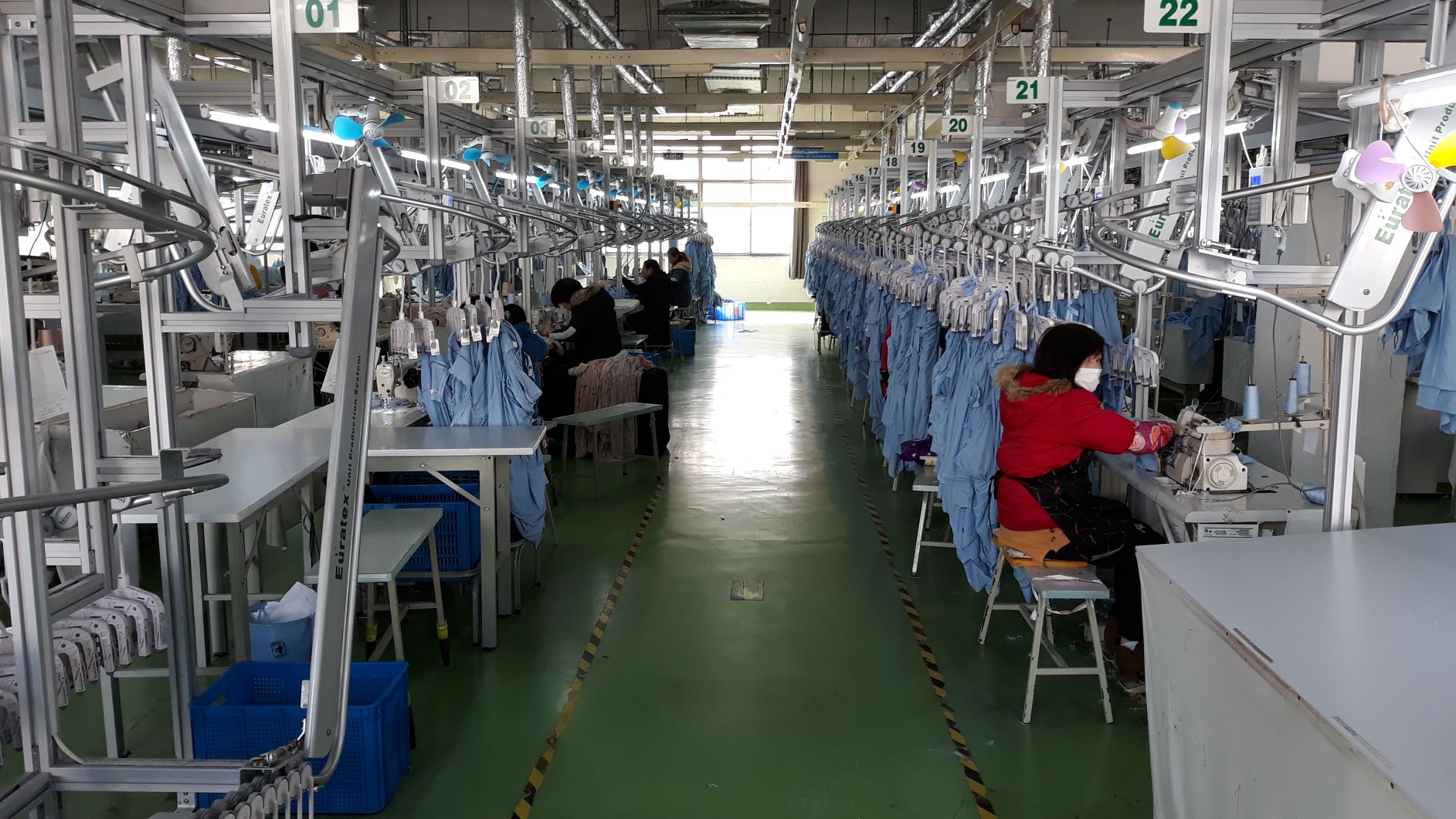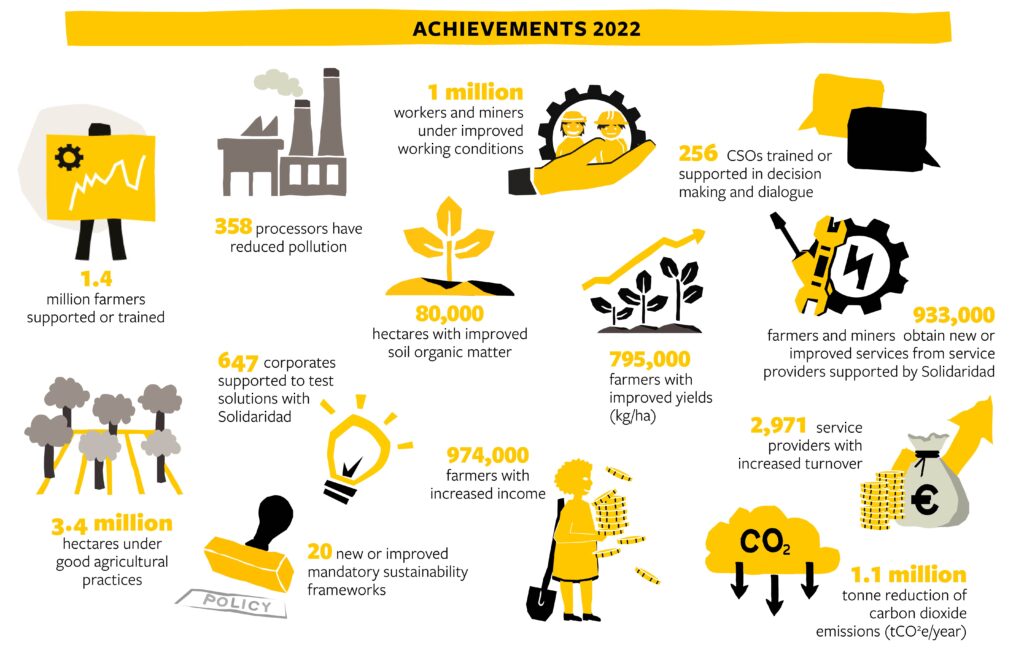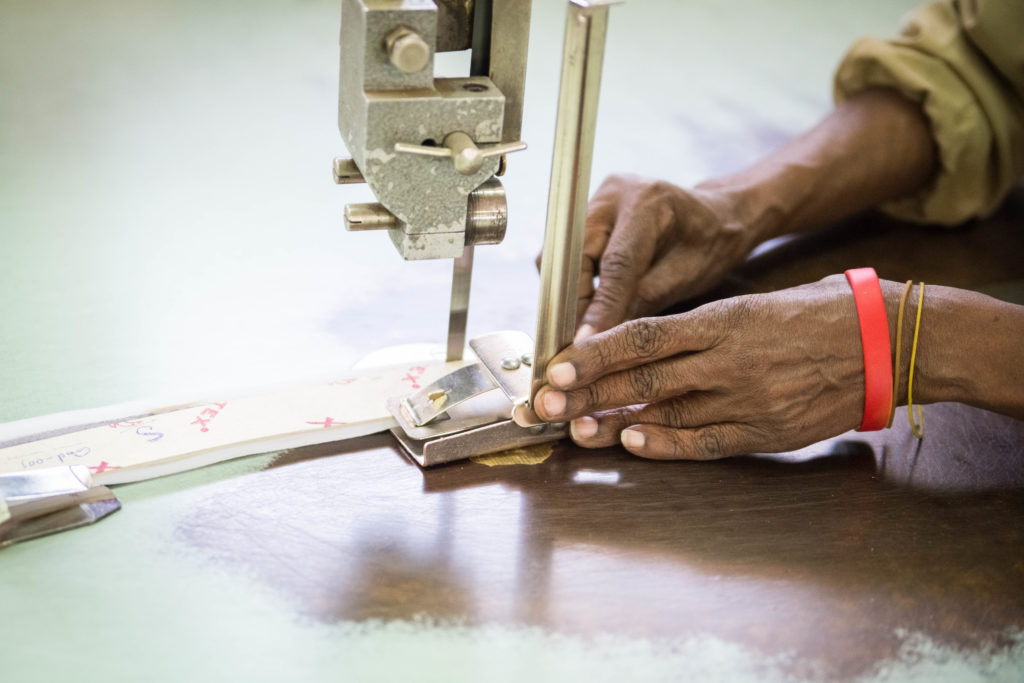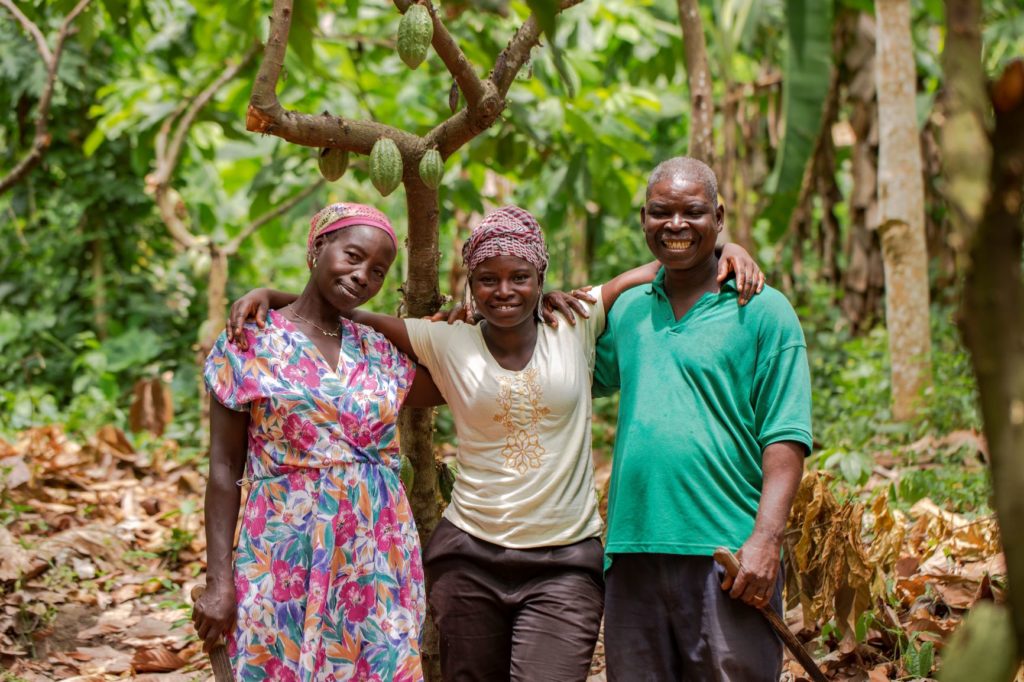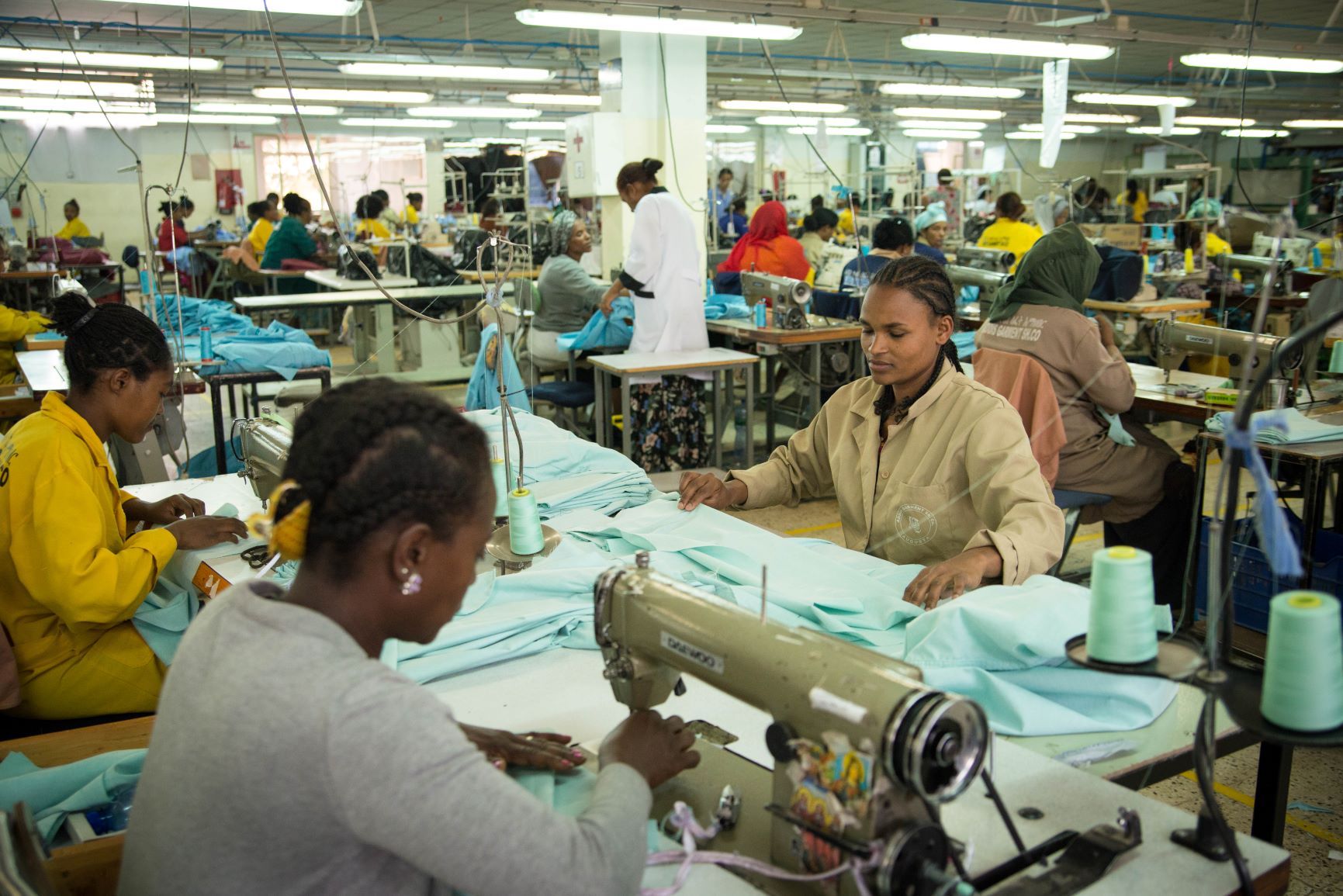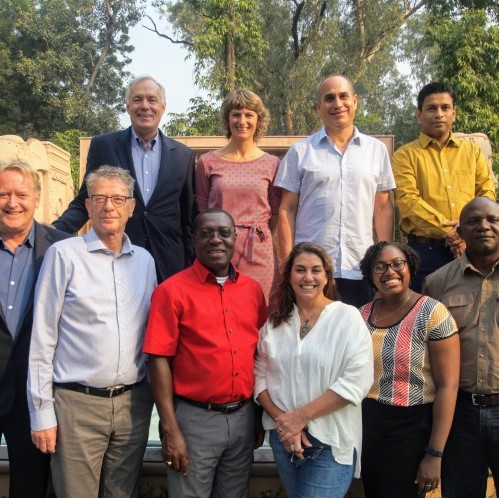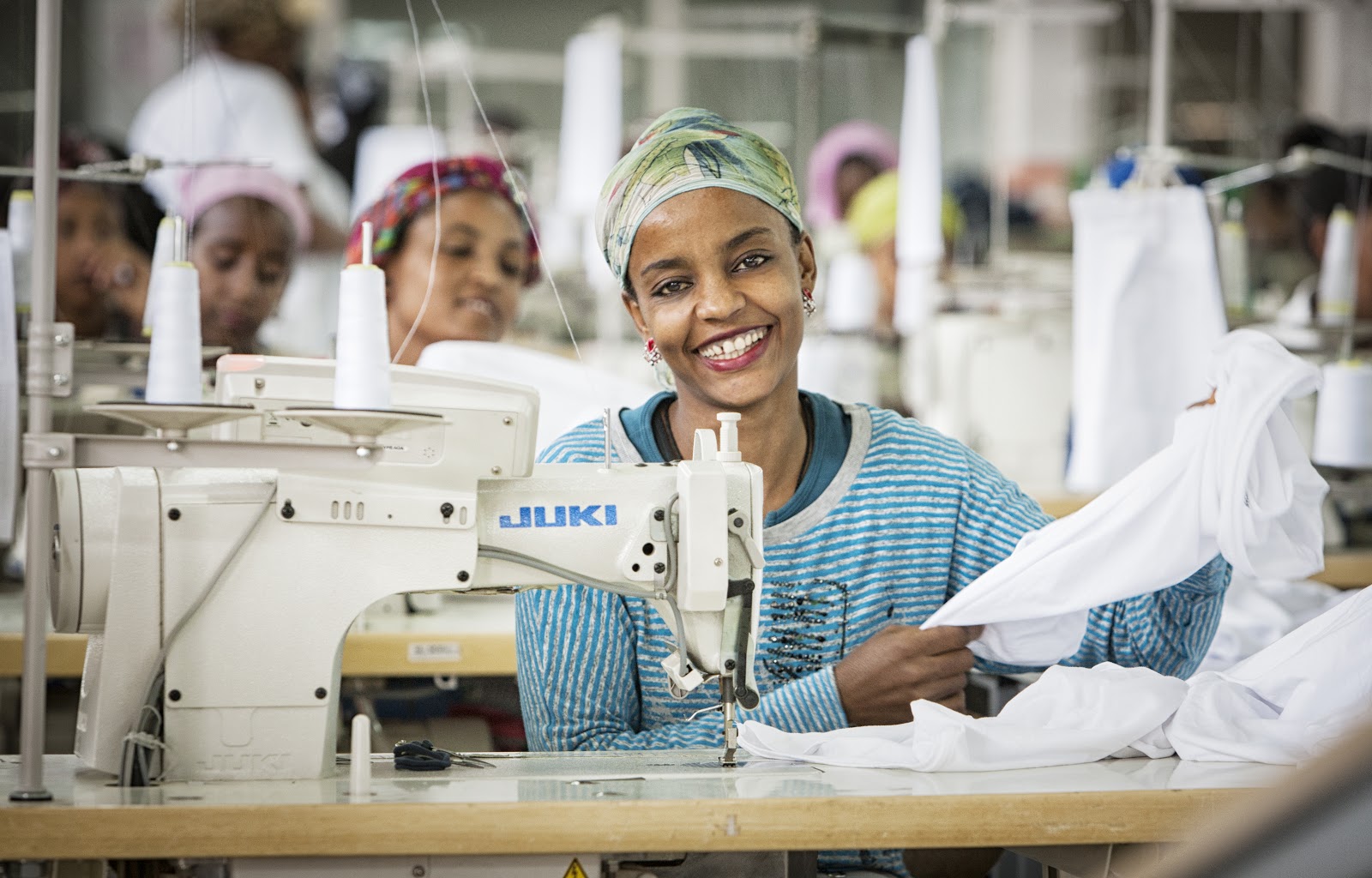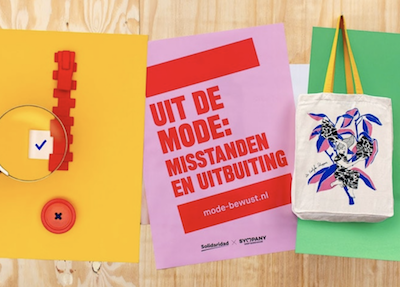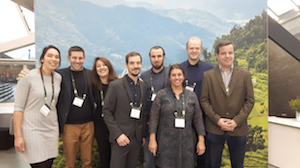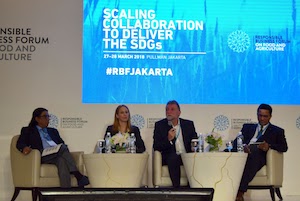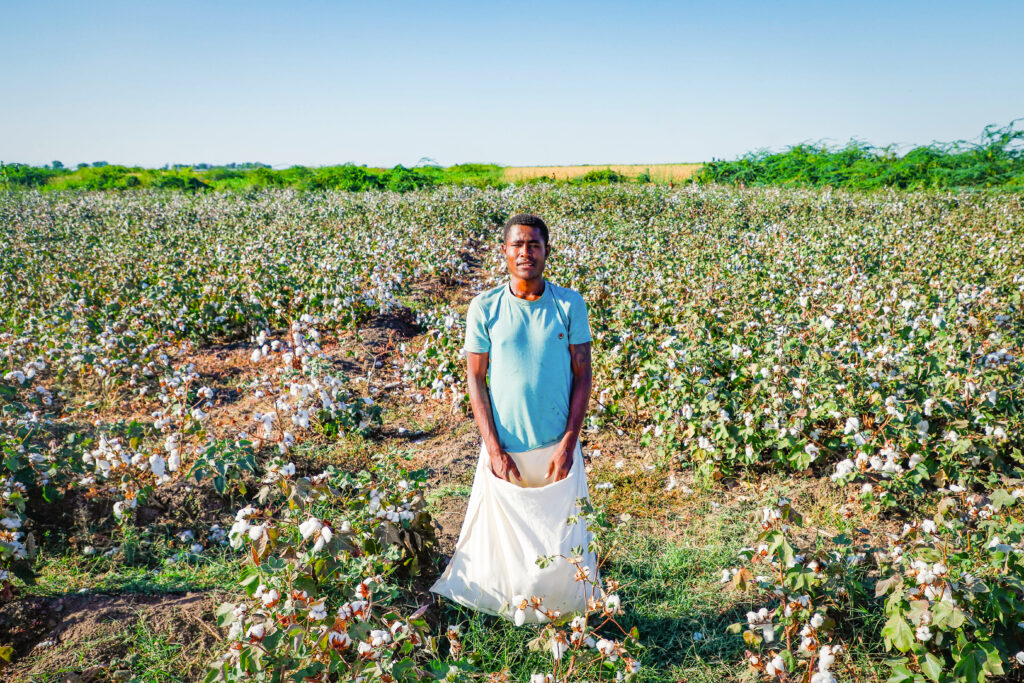
Challenges
Social, economic and environmental issues
Cotton is grown in around 80 countries, and more than 100 million households around the world are directly engaged in its cultivation. The majority of these people are smallholder farmers who grow the crop on plots smaller than 2 hectares. Cotton is a key raw material for the textile industry and represents about 30% of all fibre used in the sector.
Solutions
Engaging all stakeholders in the supply chain
Solidaridad trains and supports farmers to grow cotton using less pesticides, synthetic fertilizers and water, and with respect for decent work. We also partner with others in the sector to create good infrastructure, and work on creating an enabling environment and market based approaches to make it possible for farmers to produce and sell cotton sustainably.
In the textiles sector, finding truly scalable solutions to social and environmental challenges can help improve the wages and working conditions of millions of people and help mitigate the negative impact on the environment. It can also ensure that long-standing issues are not simply exported to the new wave of emerging production countries. Moreover, sustainable practices can also be attractive from a business perspective, as resource efficiency, cost savings and a happy and well respected workforce often go hand in hand. We believe that mainstreaming sustainability into key product design, development and purchasing practices is a critical step forward in promoting sustainable practices in the global apparel and cotton sector.
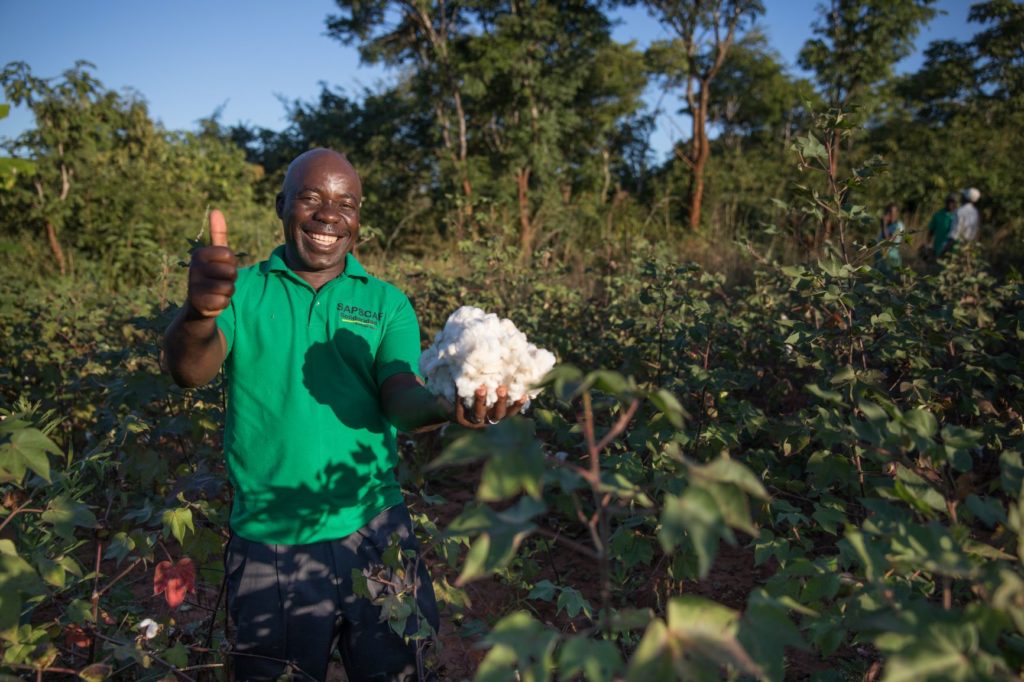
With the organic cotton initiative in our state, practices such as making organic compost are emerging again and have proven to be very helpful as they are chemical-free and do not require any extra expenditure on inputs.
Roopraj Wamanro Milmile, cotton farmer, Yavatmal, India
Achievements
Cotton farmers accrue regenerative benefits
Cotton growers in India are turning over a new leaf with regenerative agriculture. In Maharashtra, 17,000 farmers are regenagri certified with 25,893.37 hectares of land under regenerative farming. In Madhya Pradesh, 10,000 cotton farmers are on the way to become regenagri certified in 2024.
In East and Central Africa, the cotton, textile, and apparel programme provided training in advocacy, leadership skills, and the creation of Collective Bargaining Agreements (CBAs) for local CSOs and private sector associations.
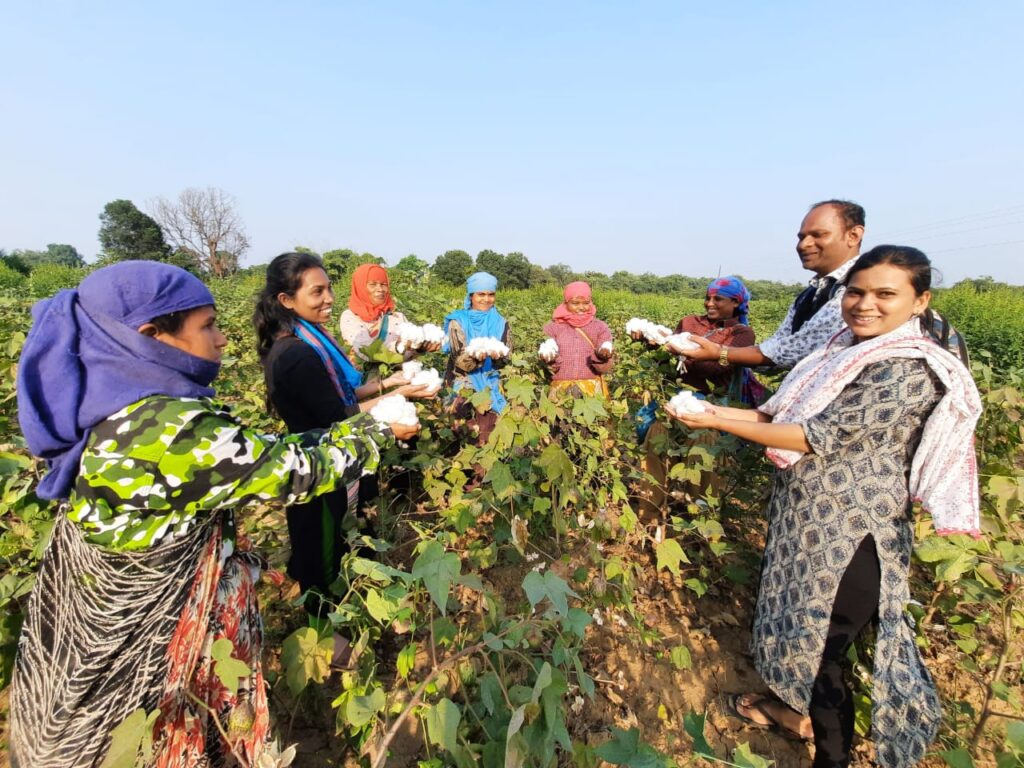
Policy influencing
Under RECLAIM Sustainability! programme, five policies were influenced. Seven multi-stakeholder dialogues were convened and five recommendations submitted as part of influencing policies around labour and gender in Mozambique and Zambia.
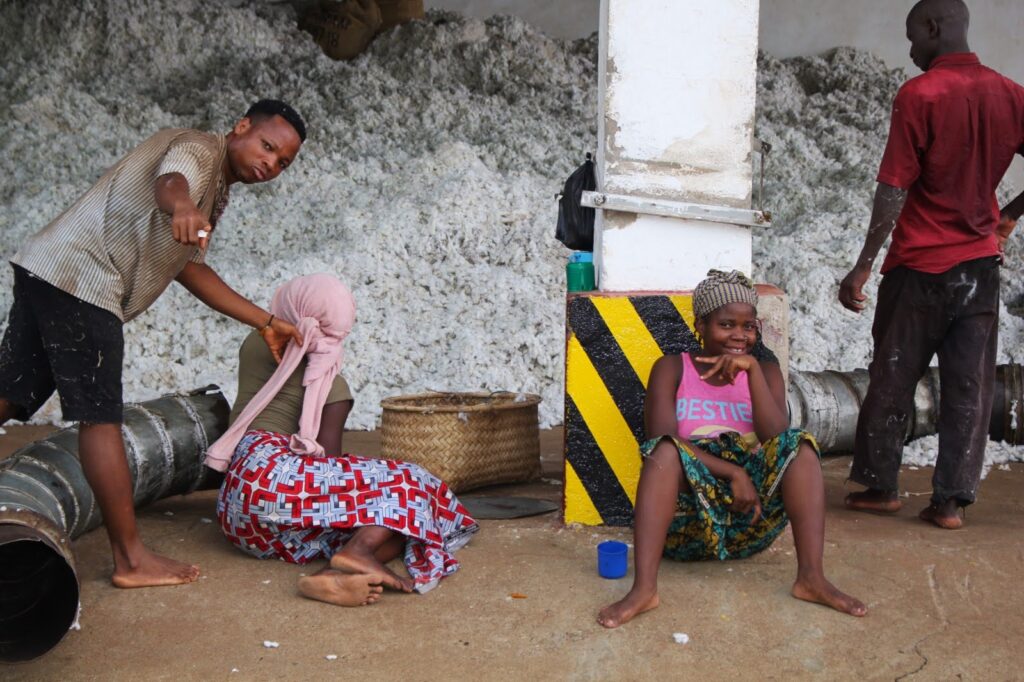
Cotton up!
In the Bottom-Up project, we reached 4,315 factory workers with environmental and social sustainability training to improve the working conditions in factories and improve ecological conservation.
Through our Better Mill Initiative and Green Tanning Initiative in Ethiopia, we worked with factory managers and workers champions to sensitize 45,065 factory workers on occupational health and safety resulting in improved working conditions.
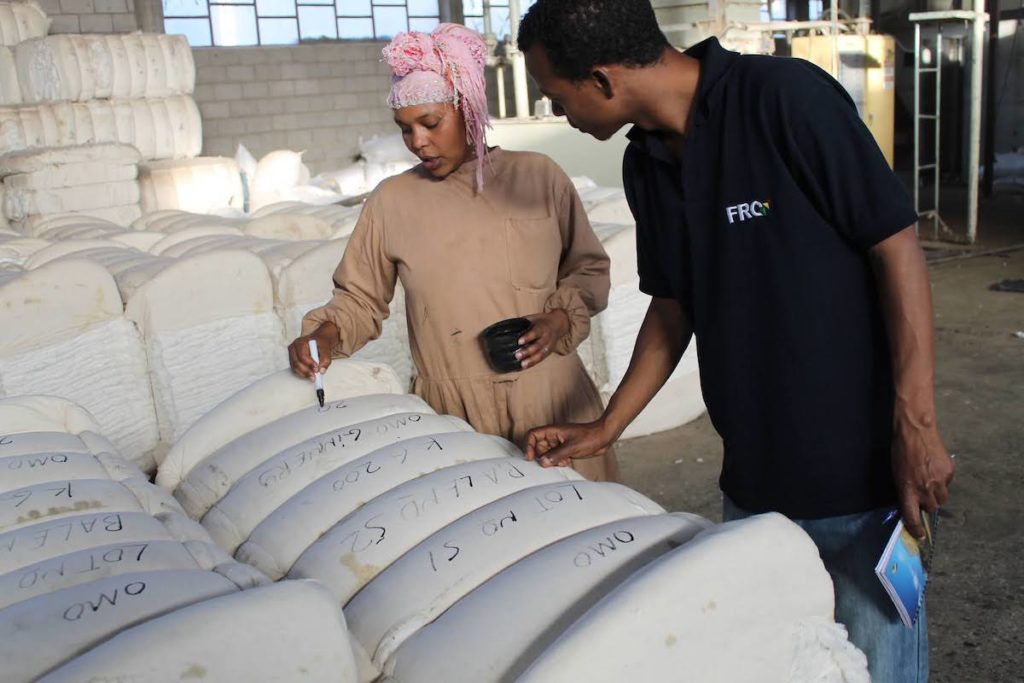
Safety first
In Ethiopia, 832 small-scale cotton farmers were mobilized under Dansha Union and supported to produce more than 600 tonne seed cotton (400ha of cotton), an increase of 375 percent compared to the previous season. Additionally, there was an overall decrease in work-related injuries among the 20 beneficiary factories reported, with 10 factories reporting zero injuries, while 10 factories reported 50 percent decrease in injuries and incidents.
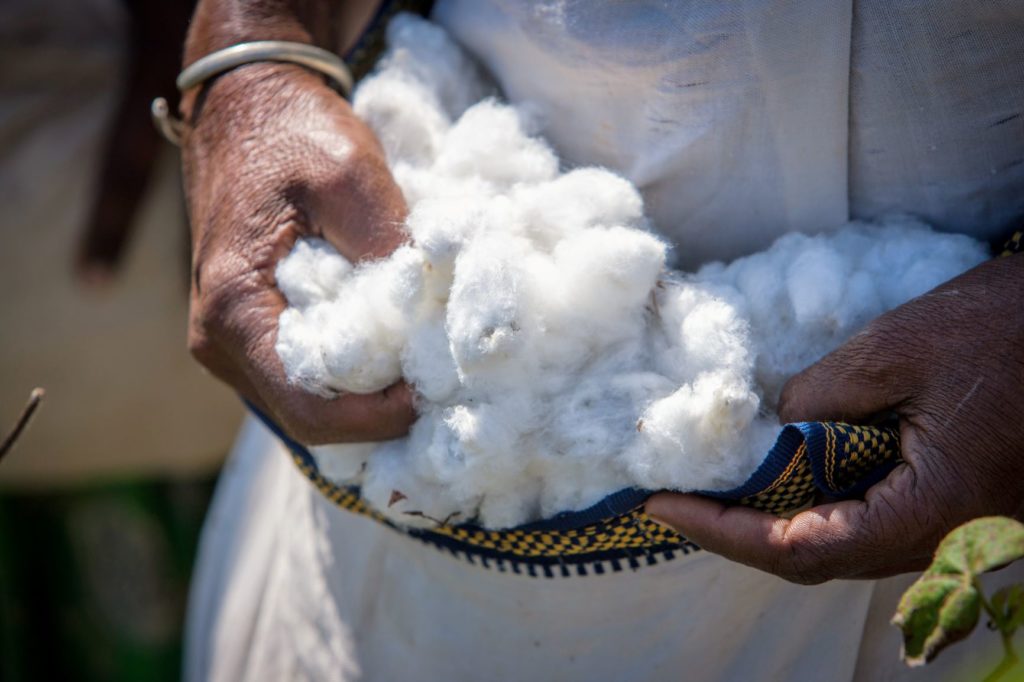
Impact on various continents
In India, 5,500 farmers were included in the organic certification journey through the formation of 11 farmer producer organizations which were then connected to markets. As a result, the farmers saw a 30% reduction in input costs.
In Ethiopia, we trained 17,500 workers at 28 textile factories. Our interventions led to the provision of meals in factories, adoption of personal protective equipment, and compliance with wastewater management guidelines.
In Brazil, cotton farmers increased their profits by 18% despite poor rainfall patterns and lower farm gate values for cotton. Strengthening of local cooperative Coopercat led to an increase of about 10% in the number of smallholder producers supported through technical assistance, collective purchasing of inputs and collective sales of cotton lint.

Reducing environmental footprint
Solidaridad continued their mill improvement and capacity building programmes in China that work to reduce the environmental impact of the textile wet processing industry (which involves water, energy, chemicals and wastewater). Following the success of the project in China, we expanded it to Ethiopia, and are now working with various organizations towards scaling up mill improvement programmes globally.
We established two organic cotton and water programmes in India’s Maharashtra state, aiming to reach 30,000 farmers. In Brazil, we continued to support smallholder cotton production in semi-arid conditions. Six of seven pilot farmers who switched to irrigated production recorded significant increases in productivity.

Stimulating demand
Through a variety of our programmes in textiles, Solidaridad has been able to reach approximately 10 suppliers in China, 200 suppliers in Bangladesh, and 18 suppliers in Ethiopia. Our work with suppliers involves, among others, fostering a broad adoption of sustainable production techniques and working conditions.
In cotton, Solidaridad’s interventions also led to improvements in both the supply of and demand for sustainable cotton. We have contacted farmers, started pilots to test new ideas and identify opportunities, and increasingly involved brands and retailers. In Brazil, South Africa and India, Solidaridad supported the adoption of good agricultural practices and helped farmers to address issues ranging from water efficiency to gender inclusion.
In Ethiopia, Solidaridad made the business case for producing sustainable and profitable cotton in a pilot project while ensuring market uptake by local textiles factories. In China and North America, Solidaridad concluded a three-year project focusing on empowering women cotton farmers through promoting good agricultural practices, leadership and entrepreneurial skills.

From field to fashion
Solidaridad continued working in China and Bangladesh by bringing best practices to scale and contributing to solutions for complex issues such as cleaner production, audit duplication and fair wages. With more brands looking out for new sourcing destinations, Solidaridad scaled up its contributions to a sustainable textile sector in countries like Ethiopia and Myanmar as well.
Through supporting Indian farmers in adopting good agricultural practices, exploring innovation with supply chain partners in Mozambique, and monitoring company performance via the Cotton Ranking, Solidaridad worked on enhancing both the supply of and demand for sustainable cotton.
Solidaridad also signed the Dutch Agreement for Sustainable Garments and Textiles; a collaboration between NGOs, trade unions, the Dutch government, sector associations and fashion brands towards a more sustainable Dutch fashion industry, based on the OECD due diligence guidance.

Consolidation and expansion
In a challenging global context, Solidaridad’s cotton programme was consolidated in nine key production countries (China, India, Kenya, Uganda, Zambia, Mozambique, Senegal, Mali and Ghana), while working on expanding to Ethiopia and South Africa. Solidaridad was thus able to explore the opportunity to connect to the growing textiles industry in Ethiopia, and link up with domestic brands and retailers in South Africa.
Solidaridad also joined the Social and Labor Convergence Program, a close MSI collaboration working towards one assessment framework for social and labor practices in the garment industry, to reduce audit fatigue and work towards real improvement of working conditions.
Furthermore, Solidaridad further scaled up the Better Mill Initiative programme.

Strategic partnership and new programme
H&M and Solidaridad announced strategic collaboration to achieve a more sustainable textile supply chain.
Solidaridad also expanded the work in wet processing mills in China. After two successful cleaner production pilot projects in the textile wet processing industry in China, Solidaridad launched the Better Mill Initiative (BMI) with the aim of bringing the earlier work to scale and broadening the scope. The programme implemented activities in three result areas which focus on mill capacity building, multi stakeholder dialogue and outreach, and awareness raising.
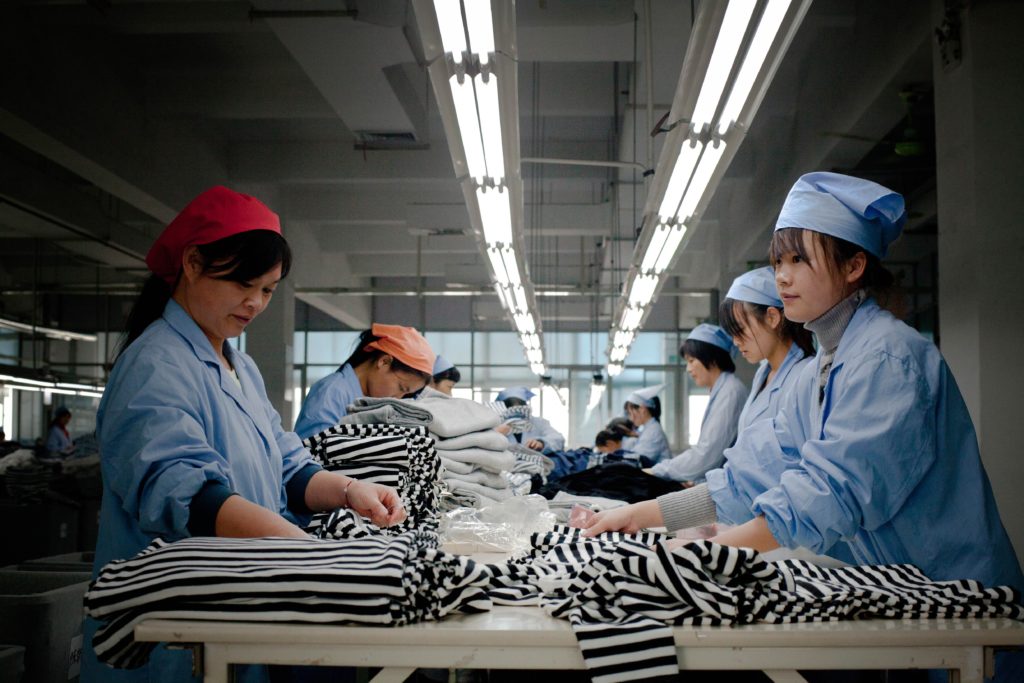
New partnerships
In collaboration with partners, Solidaridad launched the Bangladesh Water PaCT: Partnership for Cleaner Textiles programme. We worked with the IFC, the textile sector in Bangladesh, the Embassy of the Kingdom of the Netherlands and H&M, C&A, Inditex, Tesco, Primark, KappAhl, Lindex and G-Star. Furthermore, Solidaridad also launched the Better Mill Initiative, a programme targeting sustainable textile wet processing in mills in the Chinese Yangtze River Delta and Pearl River Delta regions.
We also expanded the Better Cotton Initiative (BCI) programme to Kenya, Senegal and Mozambique. Solidaridad won a BCI prize for changing women’s lives in Mali through facilitating training in literacy, leadership and communication.

Growing impact
In India, Solidaridad partnered with H&M and other brands on a programme to promote the rights of garment-factory workers. We also began a partnership with the Royal Dutch Embassy in Bangladesh, the IFC and 9 brands to scale up the programmes beginning in 2013.
The BCI expanded to Mozambique and Solidaridad’s ProCotton programme was expanded to Uganda, now totalling 28 projects. The Royal Dutch Embassy in Bangladesh began a partnership with the IFC, Solidaridad, and 9 brands to scale up the programmes beginning in 2013. Solidaridad’s Cotton Solution Network team for India won the ‘Proud to be an implementing partner’ award at the BCI’s General Assembly for the clarity, impact and originality of two best practice stories.

Learning and improving
Nijenrode University’s extensive impact assessment of Solidaridad’s Fashion programme (2007-2010) was published.
The BCI was launched in China, where it was the first initiative of its kind. Solidaridad’s ProCotton programme was expanded to Tanzania and Zambia. The Rabobank Foundation, co-funder of Solidaridad’s Cotton Solutions Network, visited India to learn about the challenges facing implementation of the Better Cotton System and Solidaridad’s approach to solving them.

Innovative approach in textiles sustainability
Solidaridad expanded its support programmes in Bangladesh by starting a cleaner production programme for the textile dyeing and finishing industry. This was carried out in partnership with the International Finance Corporation (IFC) and 8 brands. Solidaridad was also awarded a PSO for its innovative approach to solving sustainability issues in textile factories and dyeing plants.
Solidaridad joined the newly established Better Cotton Initiative (BCI) and was elected as a Civil Society Organisation on their board. In the field, Solidaridad was one of the first implementing partners of BCI, piloting their standard system in three countries – India, Mali and Brazil.

Fair Trade banknotes
The Dutch National Bank, Solidaridad and the Max Havelaar Foundation launched the first euro banknotes made from Fair Trade cotton.

Making sustainable fashion common practice
In the Netherlands, Solidaridad founded MADE-BY with the mission of making sustainable fashion common practice and guided by the still relevant principles of transparency, continuous improvement, and collaboration with fashion brands to achieve public recognition for best practices.
In India, Solidaridad supported the launch of Chetna organic, which is today a well established organic cotton community and business.

Collaboration takes off
Oro Blanco, a collaboration between Solidaridad and farmers in Peru, started growing organic cotton and other crops.

Sustainable clothing line
Solidaridad founded the sustainable clothing brand Kuyichi in order to introduce organic cotton to the clothing industry.

Next to social dilemmas, the use of water, energy and chemicals in the textile supply chain entails big risks for workers and the environment. Often companies lack knowledge due to the technical aspects of this subject.
Tamar Hoek, Senior Policy Advisor, Solidaridad Network, on the Solidaridad Wet Processing Guidebook

